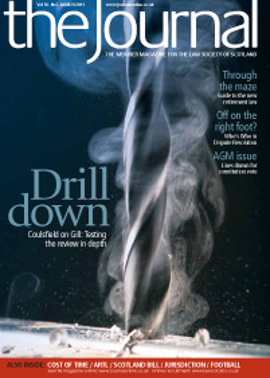Book reviews
Effective Criminal Defence in Europe
Cape, Namradze, Smith and Spronken
PUBLISHER: INTERSENTIA
ISBN: 9789400000933
PRICE: €96
An EU-Wide Letter of Rights Towards Best Practice
Taru Spronken
PUBLISHER: INTERSENTIA
ISBN: 9789400001633
PRICE: €75
The Stockholm Programme, which sets the inspirational policy agenda for EU criminal justice policy for the next five years, sets a course for the development of minimum standards for the procedural rights of the suspect or accused person in national criminal proceedings, a protection it describes as “a fundamental value of the Union, which is essential in order to maintain mutual trust between the member states and public confidence in the European Union”.
The first initiative in the “roadmap” adopted as part of the programme, a directive on the rights to interpretation and translation, has recently been adopted by the European Parliament and the Council of Ministers – a significant development after the many previous failed attempts to bring forward major initiatives in this area.
Following the Treaty of Lisbon, the EU as a legal entity will soon accede to the European Convention on Human Rights. Additionally, the Stockholm Programme seeks to further strengthen mutual trust and respect between and among the member states’ judicial systems, and with it effective mutual recognition of judicial decisions.
These two initiatives are not mutually restrictive but are rather mutually inclusive. As the Stockholm Programme declares, “the criminal should not be able to avoid prosecution and prison by crossing borders and exploiting differences between national systems”. At the same time a respected system of procedural rights strengthens the trust in mutual recognition and execution of judicial decisions across open borders and strengthens the freedom of movement of EU citizens.
Effective Criminal Defence in Europe records the results of a research project conducted over a three year period, involving some well known EU criminal law academics including Taru Spronken, Gert Vermeulen, Professor Michael Zander and Joachim Vogel.
This thorough and commendable book considers the fundamental rights of those accused of crime in a number of EU member states. Following an opening analysis of the ECHR and its effectiveness in providing a framework for the rights to an effective defence, nine member states’ legal systems and practices in this area are considered in detail. Each chapter considers the structure of the legal system concerned, the right to information, the right to a defence including access to a lawyer, procedural rights such as trial in absence, and the right to investigate the case. There then follows a comprehensive analysis of the state’s compliance with the European Convention on Human Rights. In the final chapter the authors discuss their model of an “effective criminal defence triangle”, based on their “assumption that all rights and guarantees that we have identified as playing a part in criminal defence are linked and that there must be a balance between all of these elements in order to provide a framework in which criminal defence can be effective”.
The next step of the Stockholm Programme discussion is the introduction of a letter of rights, which aims to ensure that those in custody receive a common minimum standard of information on their procedural rights. An EU-Wide Letter of Rights considers the aim of the Commission proposal for a directive, and offers a comprehensive analysis of what member states currently have in place together with a proposed model letter of rights.
These books are timely and to be commended, not only in the breadth of research, but of value in bringing to the attention of practitioners and policymakers the issues now at the core of the implementation of the Stockholm Programme.
Suggestions for future books
The Book Review Editor is David J Dickson.
Books for review should be sent c/o The Law Society of Scotland, 26 Drumsheugh Gardens, Edinburgh EH3 7YR
In this issue
- The case for full disclosure of laboratory case files
- Why join the Scottish Family Law Association?
- Above board
- Time to be counted
- Taking out rejections
- Updating the constitution
- Every bit helps
- Retiring the default age
- Keeping a grip on cash
- Watch this space
- The diehards
- Win-win ways
- "Virtual fair" opens for career options
- Law reform update
- Society's in-house work under scrutiny
- Watching over the constitution
- All aboard life's U-bend
- Ask Ash
- Working to advantage
- Frauds and scams beware
- Lay help... official
- Lacuna manufacturing
- This time it's NOT personal
- Fairness and trust
- Pensions: redefining value
- Sharing the spoils
- World IP Day 2011 approaches
- Life v reputation
- Book reviews
- ARTL, by degrees
- Contaminated land - the story continues






